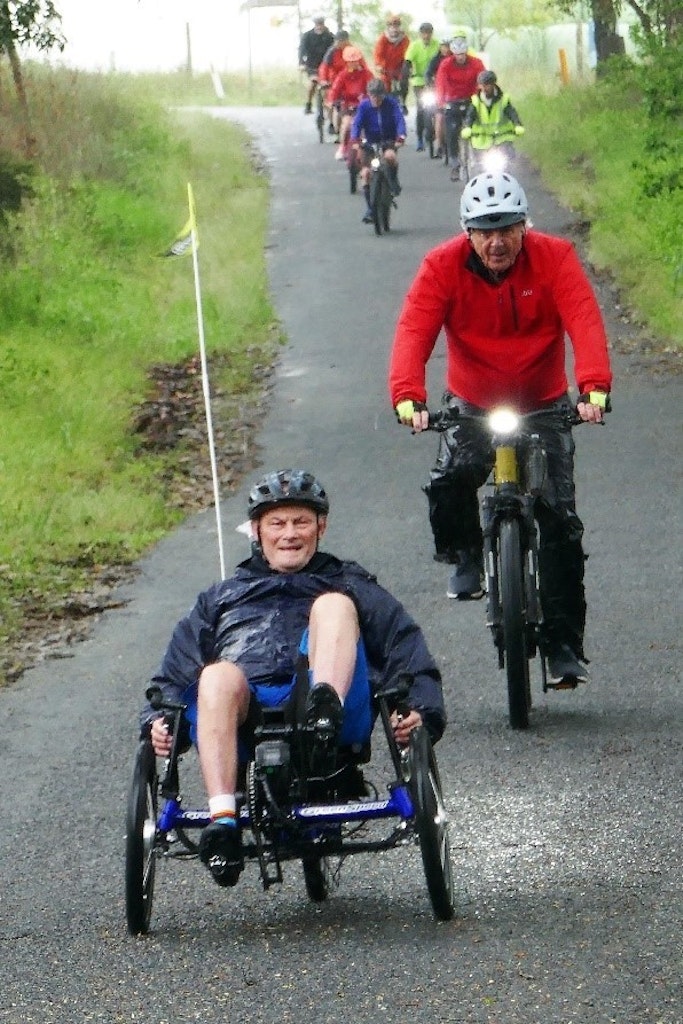Don’t drive and dislike public transport? There’s now another way
![For people with physical disabilities which may prevent them from driving, public transport might seem inefficient, embarrassing and hard to navigate, and people with invisible disabilities which prevent them from driving may experience a great deal of anxiety with mass transit. [Source: Ryan Hoi]](https://agedcareguide-assets.imgix.net/news/articles/wp/Ryannhoiphoto.jpg?fm=pjpg)
Key points:
- Bicycles have long been a popular mode of transport, promoting environmental sustainability, physical health and overall well-being
- For individuals with disabilities, using traditional bicycles may present challenges that hinder their accessibility and inclusivity
- Freedom Wheels provides custom and adaptive biking solutions in order to help people with disabilities regain their sense of autonomy
For many people with disability in Australia, getting around town can be a time-consuming and anxious process filled with uncertainty. For those who are unable or unwilling to drive, the options are severely limited, as biking — another popular alternative to driving — seems just as inaccessible.
The absence of accessible cycling infrastructure, such as bike lanes, ramps and parking, further exacerbates the problem, making it challenging for them to use bicycles safely and independently. As a result, many individuals with disabilities may feel excluded from this sustainable and empowering mode of transportation.
Governments, city planners and cycling advocacy groups have recognised the importance of inclusive infrastructure and have taken significant steps to implement changes. Widening bike lanes and adding tactile markers for individuals with visual impairments, constructing accessible parking spaces, and ensuring ramps and slopes on cycling paths are all crucial elements of an inclusive cycling infrastructure.
Freedom Wheels, provided by the Freedom Solutions Australia charity, is a national service whereby Occupational Therapists [OTs] carry out free bike trials for people living with a disability who can’t ride a standard bike. The OTs prescribe a custom bike suited to the individual’s physical and cognitive needs, so they, too, can enjoy the benefits cycling has to offer.
Ian, 69, was diagnosed with Charcot Marie-Tooth disease, a group of inherited disorders that affect the peripheral nerves and cause nerve damage. The impact is primarily felt in the arms and legs, leading to weaker muscles, loss of sensation, muscle contractions, and difficulty walking. The disease impacts his physical capacities for riding, but has found a new hobby and a new form of freedom through his Freedom Wheels bike.
“I experience continual pain and difficulty with walking. I wear braces on my legs and I use a walking stick. I have no balance,” he said.

Ian said that during his first assessment with the OT and his contact with the Freedom Wheels team, they were extremely caring, concerned and interested in helping him. [Source: supplied]
The OT assigned to work with Ian was able to curate a custom-made recumbent bike, letting Ian ride longer distances — something he expressed gratitude for, as he had been given “a new lease on life.”
“The bike mechanic showed great patience with all my questions and could not have done more to help me get the bike ‘tricked up’ to suit me.”
Ian added that he uses his bike to run errands, such as grocery shopping, as his car gathers dust in the garage. The Freedom Wheels bike enables Ian to see his children regularly, as well as engage in a newfound social life in his cycling community.
Freedom Wheels bikes are covered under the National Disability Insurance Scheme [NDIS] as a Recreational Support and will need to be listed as an Assistive Technology under a person’s NDIS plan. For a guide on how to apply for a Government funded Freedom wheels bike, check out the guidelines online.